The Tikvah Advanced Institutes are for accomplished professionals from around the globe. Participants will receive a generous stipend that will cover living expenses in New York City or Jerusalem during their time there. Explore Tikvah’s current Advanced Institute offerings and past seminars on Jewish Thought, War & Statesmanship, Economics & Public Policy, and Social Thought.
Judaism and Freedom
September 12 – 16, 2016
Instructors: Yoram Hazony, Ruth Wisse, and Meir Soloveichik

How can Jewish leaders in Israel and the diaspora benefit from a rediscovery of the distinctly biblical idea of freedom? What do the modern nations of the West, touched by the intellectual heritage of ancient Israel, stand to gain from a recovery of this inheritance? This institute will examine the concept of freedom as it is developed in Hebrew Scripture and the Jewish tradition and will compare the Jewish conceptions of freedom with modern liberal conceptions of autonomy and rights. In parallel with our conceptual investigation into the Jewish meaning of freedom, we will probe historical case studies in the Jewish experience of freedom.
What is Jewish Conservatism?
November 16 – 20, 2015
Instructors: Eric Cohen, Meir Soloveichik, and William Kristol

Faced with the novel perils of the current era, has the time come for a reconsideration of Jewish politics? What aspects of liberalism should be supported and strengthened, and in what ways is modern liberalism in real tension with Jewish values and Jewish interests? Which political philosophy truly reflects Jewish ideals and aspirations, and which set of political commitments would best protect religious observance and preserve religious freedom, reassert the morality of self-defense, embrace the traditional Jewish family, recognize the dignity of Jewish nationalism, and encourage free enterprise? In short, what would a conservative vision of Jewish politics look like, and how would it balance the Jewish tradition with the contemporary needs of the Jewish people and the Jewish State?
Tradition and Freedom: Philosophy, Theology, Literature
June 8, 2015 – June 18, 2015
Instructors: Yuval Levin, Jacob J. Schacter, and Ruth Wisse
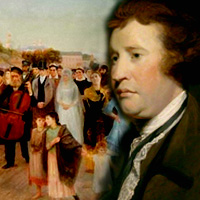
What is tradition? What is it good for? Does tradition constrain freedom, or is it the necessary condition to sustain freedom? What types of regimes are conducive to inherited ways of life, and what types of regimes denigrate the past in the name of progress and innovation? This institute will examine these questions in three distinct bodies of work relevant to contemporary Jews. Political theorist and policy intellectual Yuval Levin will lead us in an effort to explore some of the tensions between philosophy and tradition in Western thought and between freedom and tradition in modern politics. Rabbi Jacob J. Schacter will show how similar themes—including the role of “collective memory” for Jewish culture, the place of tradition in a world that venerates individual choice, and the countercultural ethic of submission to a set of “revealed truths”—are reflected in rabbinic thought. And Professor Ruth Wisse will help us to see, through the eyes of Jewish literature, how the original clashes between tradition and modernity continue to inform our contemporary choices.
Jews and Power: Literature, Philosophy, Politics
December 1, 2014 – December 12, 2014
Instructors: Ruth Wisse, Ran Baratz, and Elliott Abrams
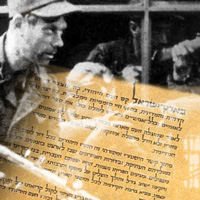 For the last many centuries, the extraordinary achievements of the Jewish people and their prodigious contributions to Western civilization have all taken place without the one thing that most defines a nation: the political and military power to protect its citizens and sovereign land. With the return of sovereignty, what is the proper relation of Judaism and Jewish tradition to political and military power? Led by Harvard University professor Ruth Wisse, Israeli intellectual and Mida editor Ran Baratz, and former deputy national security adviser and Middle East expert Elliott Abrams, this course will explore the dilemmas of Jewish power. Drawing upon the Hebrew Bible, modern Jewish literature, biographies of Jewish statesman, and various historical case studies, we will explore both the spirit of the Jewish mind and the realities of modern Jewish political condition.
For the last many centuries, the extraordinary achievements of the Jewish people and their prodigious contributions to Western civilization have all taken place without the one thing that most defines a nation: the political and military power to protect its citizens and sovereign land. With the return of sovereignty, what is the proper relation of Judaism and Jewish tradition to political and military power? Led by Harvard University professor Ruth Wisse, Israeli intellectual and Mida editor Ran Baratz, and former deputy national security adviser and Middle East expert Elliott Abrams, this course will explore the dilemmas of Jewish power. Drawing upon the Hebrew Bible, modern Jewish literature, biographies of Jewish statesman, and various historical case studies, we will explore both the spirit of the Jewish mind and the realities of modern Jewish political condition.
The Hebrew Bible and Jewish Excellence
November 30, 2014 – December 4, 2014
Instructor: Micah Goodman
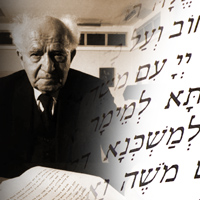 The Hebrew Bible shaped and inspired some of the greatest leaders and figures of the modern Jewish age in politics, in religious life, in philosophy, and in literature. Led by Israeli intellectual and scholar Dr. Micah Goodman, this course will examine several prominent 20th-century Jewish leaders—including David Ben-Gurion, S. Y. Agnon, Leo Strauss, and Joseph Soloveitchik—to see how their immersion in the Bible helped to form their worldview. For each figure, we will consider key selections from the biblical text as well as essays, stories, and histories that bring to life these leaders’ ideas and achievements.
The Hebrew Bible shaped and inspired some of the greatest leaders and figures of the modern Jewish age in politics, in religious life, in philosophy, and in literature. Led by Israeli intellectual and scholar Dr. Micah Goodman, this course will examine several prominent 20th-century Jewish leaders—including David Ben-Gurion, S. Y. Agnon, Leo Strauss, and Joseph Soloveitchik—to see how their immersion in the Bible helped to form their worldview. For each figure, we will consider key selections from the biblical text as well as essays, stories, and histories that bring to life these leaders’ ideas and achievements.
Divine Justice and Human Creativity in Jewish Literature
August 3, 2014 – August 8, 2014
Instructor: Dara Horn
 In the biblical Book of Job, Job’s challenge to God—“Why do people suffer undeservedly?”—is oddly answered with God’s challenge to Job: “Why aren’t you as creative as I am?” This advanced institute will address these twinned questions—the dilemma of divine justice and the related dilemma of human limits—through the lens of both ancient and modern Jewish literature.
In the biblical Book of Job, Job’s challenge to God—“Why do people suffer undeservedly?”—is oddly answered with God’s challenge to Job: “Why aren’t you as creative as I am?” This advanced institute will address these twinned questions—the dilemma of divine justice and the related dilemma of human limits—through the lens of both ancient and modern Jewish literature.
The Rabbinic Mind and Divine Law
August 3, 2014 – August 8, 2014
Instructor: Christine Hayes
 What does it mean to say that a text is divine and the norms it teaches are divine? Attributing divinity to a normative system or law would appear to establish its authority and justify our fidelity to it, but how and why does it do so? What traits do we suppose a law possesses when we refer to it as divine and why do we suppose that those traits will establish its authority and justify our fidelity?
What does it mean to say that a text is divine and the norms it teaches are divine? Attributing divinity to a normative system or law would appear to establish its authority and justify our fidelity to it, but how and why does it do so? What traits do we suppose a law possesses when we refer to it as divine and why do we suppose that those traits will establish its authority and justify our fidelity?
Reason, Revelation, and Jewish Thought
July 28, 2014 – August 1, 2014
Instructor: Moshe Halbertal
 Is reason a sovereign authority in the realms of morality and metaphysics? Led by the prominent philosopher Moshe Halbertal, this institute will explore this question through Biblical, Rabbinic, and Medieval Jewish texts. Is there recognition of independent moral obligation outside of revelation within Jewish tradition? What role do value judgments have in the interpretive process and in the development of Jewish law, generally? What role does Jewish philosophy assign to reason in shaping and orienting faith? This last issue will be dealt with by reading Maimonides’ Guide, and the controversy that evolved around Maimonides positions.
Is reason a sovereign authority in the realms of morality and metaphysics? Led by the prominent philosopher Moshe Halbertal, this institute will explore this question through Biblical, Rabbinic, and Medieval Jewish texts. Is there recognition of independent moral obligation outside of revelation within Jewish tradition? What role do value judgments have in the interpretive process and in the development of Jewish law, generally? What role does Jewish philosophy assign to reason in shaping and orienting faith? This last issue will be dealt with by reading Maimonides’ Guide, and the controversy that evolved around Maimonides positions.
Jews, Power, and the Bible
July 28, 2014 – August 1, 2014
Instructor: Micah Goodman
 Dr. Goodman, Israeli author of bestsellers on the thought of Moses Maimonides and Judah Halevi and founder of Ein Prat Academy, will focus on prominent biblical texts that address the challenges of power and sovereignty. The story of the Jewish people in the 20th century is a movement from persecution and powerlessness to sovereignty and power. The story of biblical Israel also sees a powerless people gaining land and negotiating political power’s promise and peril. On the hypothesis that the history of modern Zionism mirrors biblical history, this institute seeks to illuminate Zionist thought through the biblical lens.
Dr. Goodman, Israeli author of bestsellers on the thought of Moses Maimonides and Judah Halevi and founder of Ein Prat Academy, will focus on prominent biblical texts that address the challenges of power and sovereignty. The story of the Jewish people in the 20th century is a movement from persecution and powerlessness to sovereignty and power. The story of biblical Israel also sees a powerless people gaining land and negotiating political power’s promise and peril. On the hypothesis that the history of modern Zionism mirrors biblical history, this institute seeks to illuminate Zionist thought through the biblical lens.
Is Judaism a Religion?
July 28, 2014 – August 1, 2014
Instructor: Leora Batnitzky
 From the eighteenth century onward, modern Jewish thinkers have been concerned with the question of whether or not Judaism can fit into the modern category of religion. After all, Judaism has historically been a religion of law, and hence of practice. Adherence to religious law, which is in some measure public in nature, does not seem to fit into the category of faith or belief, which by definition is individual and private. In this advanced institute we will see that the clash between the modern category of religion and Judaism as it has been traditionally practiced gives rise to many of the creative tensions in modern Jewish thought as well as to the question of whether Judaism or Jewishness are matters of religion, culture, or nationality.
From the eighteenth century onward, modern Jewish thinkers have been concerned with the question of whether or not Judaism can fit into the modern category of religion. After all, Judaism has historically been a religion of law, and hence of practice. Adherence to religious law, which is in some measure public in nature, does not seem to fit into the category of faith or belief, which by definition is individual and private. In this advanced institute we will see that the clash between the modern category of religion and Judaism as it has been traditionally practiced gives rise to many of the creative tensions in modern Jewish thought as well as to the question of whether Judaism or Jewishness are matters of religion, culture, or nationality.
The Jewish Idea of God
May 27, 2014 – June 1, 2014
Instructors: Micah Goodman and Clifford Orwin
 If ideas have something like gravitational force, then the idea of God is as powerful and massive an idea as any. A change in one’s notion of the divine shapes and re-shapes the other ideas that govern our lives—ideas about power, freedom, time, meaning, and politics, just to name a few. This seminar will explore how the Jewish idea of God has affected the way we think about the human condition. Drawing on select texts from Genesis, Deuteronomy, Ecclesiastes, and Plato, we will ask big moral and political questions: Do biblical ideas promote a restless, active politics aimed at bringing the divine plan to fruition in history, or a moderate and humble political philosophy that understands the limits of human agency? What is the relationship between God, man, and nature? How does the idea of the Messiah alter the fundamental tenets of Jewish theology? Should the messianic age be understood as an escape from a world dominated by politics or a completion and perfection of such a world?
If ideas have something like gravitational force, then the idea of God is as powerful and massive an idea as any. A change in one’s notion of the divine shapes and re-shapes the other ideas that govern our lives—ideas about power, freedom, time, meaning, and politics, just to name a few. This seminar will explore how the Jewish idea of God has affected the way we think about the human condition. Drawing on select texts from Genesis, Deuteronomy, Ecclesiastes, and Plato, we will ask big moral and political questions: Do biblical ideas promote a restless, active politics aimed at bringing the divine plan to fruition in history, or a moderate and humble political philosophy that understands the limits of human agency? What is the relationship between God, man, and nature? How does the idea of the Messiah alter the fundamental tenets of Jewish theology? Should the messianic age be understood as an escape from a world dominated by politics or a completion and perfection of such a world?
Moments of Decision, Great Debates: Judaism in the 20th Century
November 18, 2013 – December 12, 2014
Instructors: Elliott Abrams, Michael Doran, Henry Kissinger, Allan Arkush, Ran Baratz, and Jacob J. Schacter
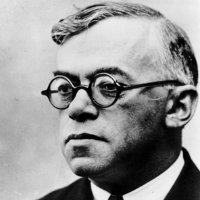 The history of the Jewish people in the 20th century is one of great dramas in human history—with tragedies and triumphs, ideological battles and great leaders, heroic achievements and existential failures, that together offers an education in the problems and possibilities of mankind writ large. For Jews, this history defines where we have been and who we have become; and it sets the terms for what we should do and how we should live, as a people and a nation, in the decades ahead. This course will study 20th century Jewish history by looking at a few of these key leaders, moments, and debates.
The history of the Jewish people in the 20th century is one of great dramas in human history—with tragedies and triumphs, ideological battles and great leaders, heroic achievements and existential failures, that together offers an education in the problems and possibilities of mankind writ large. For Jews, this history defines where we have been and who we have become; and it sets the terms for what we should do and how we should live, as a people and a nation, in the decades ahead. This course will study 20th century Jewish history by looking at a few of these key leaders, moments, and debates.
The Modern Jewish Condition: A Study in Yiddish Literature
October 28, 2013 – November 7, 2014
Instructors: Ruth Wisse
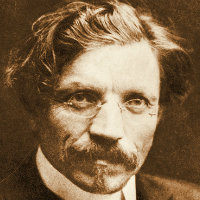 The demographic surge in European Jewry of the nineteenth and early twentieth centuries generated a parallel surge of writing in Yiddish, the vernacular of Ashkenzi Jews and their descendants. The varieties of modern Jewish life were formulated and argued out in several languages, but Yiddish was the dominant register for articulating the joys and anxieties, laughter and misery, yearnings and ruptures that attended this phase of modern Jewish life. Selected from the immense body of Yiddish writing, Harvard professor Ruth Wisse will guide us through a few of its most penetrating and provocative works by Sholem Aleichem, Isaac Bashevis Singer, Chaim Grade, and others.
The demographic surge in European Jewry of the nineteenth and early twentieth centuries generated a parallel surge of writing in Yiddish, the vernacular of Ashkenzi Jews and their descendants. The varieties of modern Jewish life were formulated and argued out in several languages, but Yiddish was the dominant register for articulating the joys and anxieties, laughter and misery, yearnings and ruptures that attended this phase of modern Jewish life. Selected from the immense body of Yiddish writing, Harvard professor Ruth Wisse will guide us through a few of its most penetrating and provocative works by Sholem Aleichem, Isaac Bashevis Singer, Chaim Grade, and others.
The Biblical View of Human Nature: Genesis and Leon Kass
September 3, 2013 – September 25, 2013
Instructors: Meir Soloveichik, Alan Mittleman, and Eric Cohen
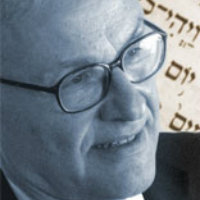 The meaning and nature of mankind is the great question for philosophers, scientists, and theologians. The Hebrew Bible, beginning with Genesis, offers a deep and complex account of who we are—from birth to death, in the family and in the community, as men and as women, called to live justly and yet so often acting in ways that distort, degrade, or even destroy the good and the holy. This course will explore the biblical view of the human condition, guided by Leon Kass’s magisterial commentary on Genesis, The Beginning of Wisdom.
The meaning and nature of mankind is the great question for philosophers, scientists, and theologians. The Hebrew Bible, beginning with Genesis, offers a deep and complex account of who we are—from birth to death, in the family and in the community, as men and as women, called to live justly and yet so often acting in ways that distort, degrade, or even destroy the good and the holy. This course will explore the biblical view of the human condition, guided by Leon Kass’s magisterial commentary on Genesis, The Beginning of Wisdom.
Is Israel Alone?
The Past, Present, and Future of the U.S.-Israel Relationship
December 14 – 18, 2015
Instructor: Michael Doran
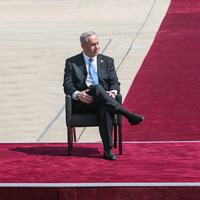
The last years have strained the relationship between the United States and the State of Israel. The two nations have serious policy disagreements and the nation’s leaders deeply distrust one another. Is this a true crisis? Is the America-Israel relationship fundamentally changing? Is Israel alone in an increasingly dangerous Middle East? Led by former National Security Council official and leading Middle East expert Michael Doran, this seminar will explore the past, present, and future of the America-Israel strategic relationship.
Nuclear Strategy and the Crisis of World Order
November 2 – 6, 2015
Instructors: Eric Edelman, Stephen Rosen, Dima Adamsky, Jacqueline Deal, and Richard Wagner

Are we entering a dangerous new age of nuclear proliferation? A world in which the use of nuclear weapons is truly imaginable or even likely? And do the democratic nations of the world—including America and Israel—have a strategy to preserve order and protect themselves in this brave new world? Led by former under-secretary of defense Eric Edelman, who helped manage the nuclear portfolio for the Bush administration, and Harvard professor Stephen Rosen, one of the nation’s preeminent nuclear strategists, this seminar will try to assess the real strategic, moral, and political challenges of the current nuclear era.
The Ethics of War
April 27, 2015 – May 1, 2015
Instructors: James M. Dubik and Stephen Peter Rosen
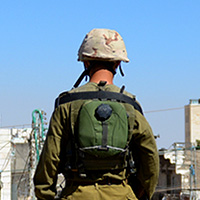
This institute will think morally about war by looking at a series of key moments and great texts in military-political history: How do we evaluate the moral decisions of ancient peoples—such as the Athenians as portrayed in the Melian dialogue, or the Israelites as portrayed in the book of Joshua? Why firebomb the cities of Germany and Japan in World War II? Why not bomb death camps at Auschwitz? And what about recent struggles—in Bosnia, in Iraq, and in Gaza? Or future dilemmas—such as the possibility of a nuclearized Middle East? With the aid of Gen. James Dubik and Stephen Rosen, we will analyze these cases in a way that takes seriously the political and strategic dilemmas, so that our moral judgments are grounded in the real choices that leaders and citizens face, both in deciding when to fight and how to fight.
The Origins of War
April 28 – April 30, 2015
Instructor: Paul Wolfowitz

“War is a permanent feature of human experience since the dawn of civilization,” wrote Donald Kagan is his important book On the Origins of War: And the Preservation of Peace. For Israelis, war and preparation for war are an integral part of life. Nevertheless, in the Western world and in Israel too, few attempt to intellectually delve into the sources of war, to study its causes and understand its frequent occurrence. The study of war can be daunting, yet its pervasiveness demands that we probe it closely.
Leadership in Crisis: Lincoln and Churchill at War
June 16 – June 18, 2015
Instructor: Eliot Cohen

War poses the greatest challenge to leaders. In wartime, statesmen must act with prudence, harness the resources of their country, and inspire their publics to victory. It is not a simple test: Success is demanded, while defeat carries great cost and pain. How did great leaders of the past deal with these challenges? What strategies did they pursue, what calculations did they make, where did they focus greatest effort, how they make decisions, and how did they define victory? We will study these questions by reviewing the records of two great leaders.
Israeli National Defense: Security Doctrine and the Balance of Forces
November 9, 2014 – November 13, 2014
Instructor: General Yaakov Amidror
 In the State of Israel, most citizens serve in the army and many citizens serve in the reserve forces. Yet despite this first-hand military experience, there is a lack of high-level public discourse regarding many of the foundational issues that relate to the military capabilities of Israel’s defense forces. Led by former Israeli National Security Advisor Maj. Gen. Yaakov Amidror, this institute will focus on three central issues where the lack of serious national discussion is a problem. Our hope is that the ideas discussed and the participants involved in this institute will make a major contribution to defining Israel’s true security needs in the years ahead.
In the State of Israel, most citizens serve in the army and many citizens serve in the reserve forces. Yet despite this first-hand military experience, there is a lack of high-level public discourse regarding many of the foundational issues that relate to the military capabilities of Israel’s defense forces. Led by former Israeli National Security Advisor Maj. Gen. Yaakov Amidror, this institute will focus on three central issues where the lack of serious national discussion is a problem. Our hope is that the ideas discussed and the participants involved in this institute will make a major contribution to defining Israel’s true security needs in the years ahead.
Zionist Statesmanship: Ben-Gurion and Begin
August 3, 2014 – August 8, 2014
Instructor: Daniel Gordis
 Can one speak meaningfully of a distinct craft of “Zionist Statesmanship”? Of what might such a craft be constructed, and on what issues would it hinge? One way of examining this set of questions is to look at the lives of David Ben-Gurion and Menachem Begin, bitter archrivals who – though each played a pivotal role in the creation of the State of Israel and eventually served as Prime Minister – had profoundly different views on the Jewish use of power, the place of Jewish text and tradition in the formation of Jewish policy, and the degrees to which Jewish statesmanship ought to be rooted in the past as opposed to focused on achieving a better future.
Can one speak meaningfully of a distinct craft of “Zionist Statesmanship”? Of what might such a craft be constructed, and on what issues would it hinge? One way of examining this set of questions is to look at the lives of David Ben-Gurion and Menachem Begin, bitter archrivals who – though each played a pivotal role in the creation of the State of Israel and eventually served as Prime Minister – had profoundly different views on the Jewish use of power, the place of Jewish text and tradition in the formation of Jewish policy, and the degrees to which Jewish statesmanship ought to be rooted in the past as opposed to focused on achieving a better future.
War and Human Nature
June 9, 2014 – June 20, 2014
Instructors: Frederick W. Kagan, Barry Strauss, Eric Edelman, Charles Hill, and Stephen Rosen
 This course will explore the place of war in human life from a variety of angles: what drives men to fight; what makes war moral or immoral; how soldiers and civilians live with the specter of killing and dying; what war means for statesmen and generals, for ordinary soldiers and passionate revolutionaries, for wives and children. Drawing on a mix of classical texts, war histories, and modern studies of warfare, the seminar will explore the ways in which statesman and strategists think about the deeper human questions, and how our moral ideas about the meaning of war shape different war strategies. We will also look at what the new sciences of man—especially evolutionary biology and neuroscience—may teach us about the place of war in human life; and how new technologies—especially weapons of mass destruction and the use of drones—are shaping and re-shaping the human meaning of war, for better and perhaps, tragically, for much, much worse.
This course will explore the place of war in human life from a variety of angles: what drives men to fight; what makes war moral or immoral; how soldiers and civilians live with the specter of killing and dying; what war means for statesmen and generals, for ordinary soldiers and passionate revolutionaries, for wives and children. Drawing on a mix of classical texts, war histories, and modern studies of warfare, the seminar will explore the ways in which statesman and strategists think about the deeper human questions, and how our moral ideas about the meaning of war shape different war strategies. We will also look at what the new sciences of man—especially evolutionary biology and neuroscience—may teach us about the place of war in human life; and how new technologies—especially weapons of mass destruction and the use of drones—are shaping and re-shaping the human meaning of war, for better and perhaps, tragically, for much, much worse.
Israeli Grand Strategy
September 22, 2013 – September 25, 2013
Instructors: Uzi Arad
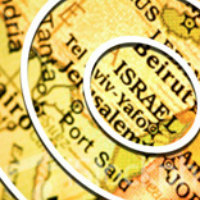 The Middle East is witnessing dramatic change—the rise of Islamism, the ever-shifting balance of autocracy and democracy, the production and procurement of weapons of mass destruction. All this is happening alongside major changes in the broader global landscape when it comes to energy, information technology, commerce, and values. How can Israel maintain her strategic edge in this volatile environment? Former Israeli National Security Advisor Uzi Arad will explore the past, present, and future of Israeli grand strategy, exploring the choices that Israeli statesmen will face in the years and decades ahead.
The Middle East is witnessing dramatic change—the rise of Islamism, the ever-shifting balance of autocracy and democracy, the production and procurement of weapons of mass destruction. All this is happening alongside major changes in the broader global landscape when it comes to energy, information technology, commerce, and values. How can Israel maintain her strategic edge in this volatile environment? Former Israeli National Security Advisor Uzi Arad will explore the past, present, and future of Israeli grand strategy, exploring the choices that Israeli statesmen will face in the years and decades ahead.
American Grand Strategy
Instructors: Eric Edelman
September 9, 2013 – September 13, 2013
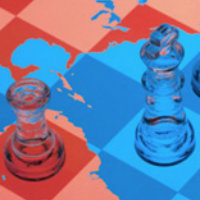 America has a large and unique role in the world—politically, economically, culturally, and militarily. To some, America is the world’s sole superpower, the “indispensable nation,” the leading democracy of the current age; to others, it is the Great Satan, an irresponsible empire, or a nation in decline. Led by former U.S. Under-Secretary of Defense Eric Edelman, this course explores America’s great strategic challenges and options in the current age, drawing heavily on both his study of history and first-hand experience in the policy arena. What forces, interests, and values will shape American grand strategy in the years ahead?
America has a large and unique role in the world—politically, economically, culturally, and militarily. To some, America is the world’s sole superpower, the “indispensable nation,” the leading democracy of the current age; to others, it is the Great Satan, an irresponsible empire, or a nation in decline. Led by former U.S. Under-Secretary of Defense Eric Edelman, this course explores America’s great strategic challenges and options in the current age, drawing heavily on both his study of history and first-hand experience in the policy arena. What forces, interests, and values will shape American grand strategy in the years ahead?
The Ethics of Modern War
August 19, 2013 – September 4, 2013
Instructors: Victor Davis Hanson, Frederick W. Kagan, and Peter Feaver
 War is an inescapable part of the human condition, with the course of history and the character of civilizations often shaped by the legacy of past conflicts and the possibility of future ones. This course will focus on the moral dilemmas of warfare—looking back at some of the classic thinkers and decisive moments in military history, and forward at some of the novel dilemmas posed by new weapons of war and new geopolitical clashes. Michael Walzer’s classic work Just and Unjust Wars will be our guide, probing and challenging his arguments in search of a true modern ethic of war.
War is an inescapable part of the human condition, with the course of history and the character of civilizations often shaped by the legacy of past conflicts and the possibility of future ones. This course will focus on the moral dilemmas of warfare—looking back at some of the classic thinkers and decisive moments in military history, and forward at some of the novel dilemmas posed by new weapons of war and new geopolitical clashes. Michael Walzer’s classic work Just and Unjust Wars will be our guide, probing and challenging his arguments in search of a true modern ethic of war.
The Future of the Welfare State
November 6 – 10, 2016
Instructor: Christopher DeMuth

Many of the world’s advanced democracies have encountered painful economic upheavals in recent years—market crashes, growing debt, low growth, high unemployment, and mounting popular anxiety over stagnant wages. While political debates rage about what to do—more government or less, more competition or more regulation—few nations have enacted serious, sustainable policy reforms to prepare for the challenging decades ahead. Looking back, we will try to understand why certain economic policies succeed or fail. Looking ahead, we will evaluate a range of alternatives for preserving national economic strength and social cohesion in a world re-made by globalization, aging populations, new technologies, and dramatic cultural transformations in how people live and what they value.
Capitalism and the Future of Democracy
November 10, 2014 – November 21, 2014
Instructors: Yuval Levin and Christopher DeMuth
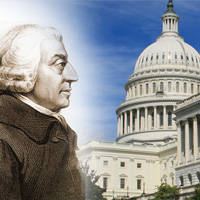 What is the relationship between capitalism and democracy? Does economic liberty serve and strengthen political freedom, or does the pursuit of self-interest undermine the moral qualities necessary for political freedom? Does modern democracy ensure a free and flourishing economy, or do the egalitarian ideals of democratic man require limitations on market competition and an ever-expanding welfare state? Led by Yuval Levin, founding editor of National Affairs, and Christopher DeMuth, former president of the American Enterprise Institute, this institute aims to explore the fundamental questions of political economy, by drawing upon classic texts of modern economic and democratic thought, and then looking at key modern debates and policy dilemmas now facing the advanced democracies of the world.
What is the relationship between capitalism and democracy? Does economic liberty serve and strengthen political freedom, or does the pursuit of self-interest undermine the moral qualities necessary for political freedom? Does modern democracy ensure a free and flourishing economy, or do the egalitarian ideals of democratic man require limitations on market competition and an ever-expanding welfare state? Led by Yuval Levin, founding editor of National Affairs, and Christopher DeMuth, former president of the American Enterprise Institute, this institute aims to explore the fundamental questions of political economy, by drawing upon classic texts of modern economic and democratic thought, and then looking at key modern debates and policy dilemmas now facing the advanced democracies of the world.
The Israeli Economy: A Strategy for the Future
April 28, 2014 – May 2, 2014
Instructors: Dan Senor and Ohad Reifen
 This course will examine the various dimensions of the modern Israeli economy, with a view to defining a strategy for promoting economic growth, strengthening the social fabric, and sustaining Israeli power and Jewish sovereignty. Led by prominent public intellectual, investor, and Start-Up Nation author Dan Senor and SUN Institute policy director and former Israeli budget department official Ohad Reifen, this course will explore both a series of fiscal policy ideas, as well as the sources of Israeli entrepreneurship. It will include discussions with prominent Israeli political leaders and high-tech entrepreneurs, looking back and looking ahead at how economic vitality can help sustain the Zionist project.
This course will examine the various dimensions of the modern Israeli economy, with a view to defining a strategy for promoting economic growth, strengthening the social fabric, and sustaining Israeli power and Jewish sovereignty. Led by prominent public intellectual, investor, and Start-Up Nation author Dan Senor and SUN Institute policy director and former Israeli budget department official Ohad Reifen, this course will explore both a series of fiscal policy ideas, as well as the sources of Israeli entrepreneurship. It will include discussions with prominent Israeli political leaders and high-tech entrepreneurs, looking back and looking ahead at how economic vitality can help sustain the Zionist project.
The Future of the Welfare State
November 4, 2013 – November 7, 2013
Instructors: James Capretta
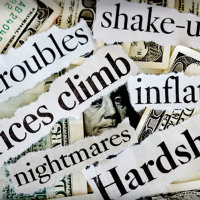 Over the past few years, the advanced democracies of the world have suffered a series of painful economic upheavals. While still quite prosperous by the standards of history, modern individuals and modern nations look to the future with anxiety and uncertainty—fueled by rising national debt burdens, aging populations, and rapid economic changes that make existing industries and jobs quickly obsolete. And while the political debates rage on about what to do—more government or less government, more competition or more regulation—very few nations have enacted policy reforms that are sensible and sustainable for the decades ahead. This course will explore the future of the modern welfare state, looking at both specific reform ideas and the deeper questions we face about who we are and how we live.
Over the past few years, the advanced democracies of the world have suffered a series of painful economic upheavals. While still quite prosperous by the standards of history, modern individuals and modern nations look to the future with anxiety and uncertainty—fueled by rising national debt burdens, aging populations, and rapid economic changes that make existing industries and jobs quickly obsolete. And while the political debates rage on about what to do—more government or less government, more competition or more regulation—very few nations have enacted policy reforms that are sensible and sustainable for the decades ahead. This course will explore the future of the modern welfare state, looking at both specific reform ideas and the deeper questions we face about who we are and how we live.
The Foundations of a Free Economy: Hayek and His Critics
October 7, 2013 – October 31, 2013
Instructors: Christopher DeMuth,Yuval Levin, Paul A. Rahe, and James Otteson
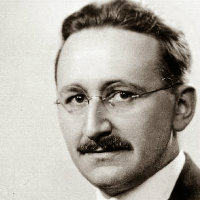 What is the proper relationship between the individual and state? Which type of social order is the most just, the most prosperous, and the most realistic given the lessons of history and truths of human nature? In no small measure, the 20th century was shaped by competing answers to these great questions, and in all likelihood so too will the century ahead. One of the central figures in these debates was the economist and social theorist F.A. Hayek, and this course will focus on the careful study of his seminal work, The Constitution of Liberty. Hayek will be understood as part of a grand conversation about economics and politics, and we will look at both his predecessors—Aristotle, Locke, Smith—and his greatest rivals—especially John Maynard Keynes.
What is the proper relationship between the individual and state? Which type of social order is the most just, the most prosperous, and the most realistic given the lessons of history and truths of human nature? In no small measure, the 20th century was shaped by competing answers to these great questions, and in all likelihood so too will the century ahead. One of the central figures in these debates was the economist and social theorist F.A. Hayek, and this course will focus on the careful study of his seminal work, The Constitution of Liberty. Hayek will be understood as part of a grand conversation about economics and politics, and we will look at both his predecessors—Aristotle, Locke, Smith—and his greatest rivals—especially John Maynard Keynes.
The Jewish-Christian Alliance: Past, Present, and Future
December 5 – 9, 2016
Instructors: Meir Soloveichik and Robert Nicholson

In a time of social breakdown and political dysfunction, what is the state of the Jewish-Christian alliance in America? What can be done to strengthen and deepen this moral and political alliance, while still respecting the permanent theological differences between faithful Jews and Christians? How do different sectors within American Christianity approach the Jewish people and the State of Israel, and how do different sectors of the Jewish community look upon American Christians? How can Jews and Christians rely on and learn from one another as traditionalist allies in a secular age?
Liberalism, Conservatism, and Zionism
November 14 – 18, 2016
Instructors: Peter Berkowitz and Asael Abelman

Is Zionism a revolutionary idea or a retrieval of an ancient heritage? The visionaries of modern Zionism described it alternatively as a progressive revolution and as an enterprise of conservative recovery. In Israel today, these two spirits inform two shifting political coalitions, a progressive left and a conservative right. Outside of Israel, progressives and conservatives view Israel in different ways, each finding an echo of their own ideological commitments in the complicated realities of Israeli public life. This advanced institute will probe the history of Zionist achievements and representative selections of Zionist writings against the backdrop of the Western political traditions of liberalism and conservatism.
God, Politics, and the Future of Europe
November 10 – 13, 2015
Instructors: George Weigel, Daniel Johnson, and Yoram Hazony
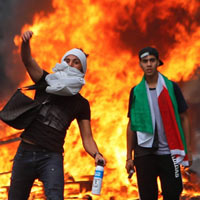
Is the crisis of Europe a crisis for Western civilization? Can these disquieting trends be reversed? If so, what would a reformation look like? If not, what does the decline of Europe mean for America, for Jews, and for Israel? The seminar will be led by historian, theologian, and world-renowned intellectual George Weigel, author of The Cube and the Cathedral: Europe, America, and Politics without God and more than a dozen other books and acclaimed author. He will be joined by Daniel Johnson, acclaimed author, journalist, and founding editor of Standpoint, and philosopher, political theorist, and Herzl Institute President Yoram Hazony, to help us see the European condition in all of its demographic, cultural, religious, and political complexity.
The Case for Nationalism
December 8, 2014 – December 12, 2014
Instructor: William Kristol
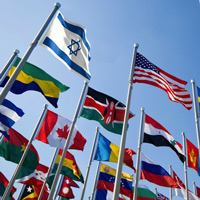 Is national pride to be celebrated or feared? Is “national interest” a noble idea? Do nations have a future—and should they have a future? Or is the world moving toward a new age of cosmopolitan internationalism, trans-national ideologies, and sub-national tribalism? Led by Dr. William Kristol, editor of The Weekly Standard, this institute will examine the political and moral questions surrounding nationalism and nation-states. The course will begin by examining the case for and against nationalism, drawing upon some of the major works of modern political theory. It will then look in detail at three “regimes”—Europe, America, and modern Israel—drawing upon a mix of classic texts, speeches, and case studies.
Is national pride to be celebrated or feared? Is “national interest” a noble idea? Do nations have a future—and should they have a future? Or is the world moving toward a new age of cosmopolitan internationalism, trans-national ideologies, and sub-national tribalism? Led by Dr. William Kristol, editor of The Weekly Standard, this institute will examine the political and moral questions surrounding nationalism and nation-states. The course will begin by examining the case for and against nationalism, drawing upon some of the major works of modern political theory. It will then look in detail at three “regimes”—Europe, America, and modern Israel—drawing upon a mix of classic texts, speeches, and case studies.
The Western Tradition of Liberty
November 16, 2014 – November 20, 2014
Instructors: Ran Baratz and Peter Berkowitz
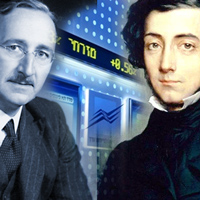 In Israel, the United States, and all the democratic nations of the West, a great debate is unfolding about the nature of freedom. Led by political theorist Peter Berkowitz of Stanford University and Israeli public intellectual and Mida editor Ran Baratz, this institute will explore the past, present, and future of the idea of freedom and the tradition of liberty. How does liberty contribute to prosperity and happiness? How does it relate to Judaism, and the unique character of the Jewish State? What threats—foreign and domestic—confront liberty in the western nations, and what resources—spiritual, cultural, political, material—can the liberal democracies count on to preserve their founding promise?
In Israel, the United States, and all the democratic nations of the West, a great debate is unfolding about the nature of freedom. Led by political theorist Peter Berkowitz of Stanford University and Israeli public intellectual and Mida editor Ran Baratz, this institute will explore the past, present, and future of the idea of freedom and the tradition of liberty. How does liberty contribute to prosperity and happiness? How does it relate to Judaism, and the unique character of the Jewish State? What threats—foreign and domestic—confront liberty in the western nations, and what resources—spiritual, cultural, political, material—can the liberal democracies count on to preserve their founding promise?
Religious Freedom in America
November 3, 2014 – November 7, 2014
Instructors: Meir Soloveichik and Michael W. McConnell
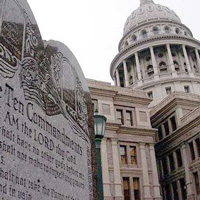 What is the role of religion in American public life, and how should religious communities understand religious liberty? Led by Rabbi Meir Soloveichik of Yeshiva University and former federal judge Michael McConnell of Stanford Law School, this institute will explore the historical background, philosophical foundations, and current controversies about the idea of religious freedom in America. We will then move to a discussion of key political and legal disputes at the crossroads of democratic politics and religious freedom, including debates about marriage law, public support for religious schools, decisions related to healthcare and insurance, and the adoption of children.
What is the role of religion in American public life, and how should religious communities understand religious liberty? Led by Rabbi Meir Soloveichik of Yeshiva University and former federal judge Michael McConnell of Stanford Law School, this institute will explore the historical background, philosophical foundations, and current controversies about the idea of religious freedom in America. We will then move to a discussion of key political and legal disputes at the crossroads of democratic politics and religious freedom, including debates about marriage law, public support for religious schools, decisions related to healthcare and insurance, and the adoption of children.
The Future of the Family
July 7, 2014 – July 18, 2014
Instructors: Eric Cohen, Gilbert Meilaender, Dara Horn, Meir Soloveichik, W. Bradford Wilcox, Jack Wertheimer, Ryan Anderson, and Jonathan Last
 This seminar will examine the state of the family in modern society and the idea of the family as explored in some of the great theological, philosophical and literary texts of the Judeo-Christian West—from the Hebrew Bible, to Plato and Shakespeare, to Tolstoy and Sholem Aleichem, to Simone de Beauvoir and Joseph Soloveitchik. We will explore the big arguments about the meaning of the family, as well as the facts and trends that show us how the institution of the family is truly faring in modern times. And we will look at a range of concrete reform ideas—both cultural and political—that aim to strengthen family life for the generations ahead.
This seminar will examine the state of the family in modern society and the idea of the family as explored in some of the great theological, philosophical and literary texts of the Judeo-Christian West—from the Hebrew Bible, to Plato and Shakespeare, to Tolstoy and Sholem Aleichem, to Simone de Beauvoir and Joseph Soloveitchik. We will explore the big arguments about the meaning of the family, as well as the facts and trends that show us how the institution of the family is truly faring in modern times. And we will look at a range of concrete reform ideas—both cultural and political—that aim to strengthen family life for the generations ahead.
Liberalism, Conservatism, and the Jews
May 12, 2014 – May 23, 2014
Instructors: Peter Berkowitz, Yuval Levin, Meir Soloveichik, William Kristol, and William Galston
 Most Jews have strong political beliefs—about the role of government, the uses of power, the meaning of social justice, and the proper place of religion in public life. But what, if anything, do these varying beliefs have to do with Judaism? Should Jewish politics be governed by what Judaism teaches, or by what is best for the Jews? In contemporary political life, should Jews be liberals or conservatives? This seminar will explore these questions as a problem of political philosophy, drawing on both the foundational texts and ideas of modern liberalism and conservatism and the Jewish writings, classical and modern, that suggest a uniquely Jewish political persuasion.
Most Jews have strong political beliefs—about the role of government, the uses of power, the meaning of social justice, and the proper place of religion in public life. But what, if anything, do these varying beliefs have to do with Judaism? Should Jewish politics be governed by what Judaism teaches, or by what is best for the Jews? In contemporary political life, should Jews be liberals or conservatives? This seminar will explore these questions as a problem of political philosophy, drawing on both the foundational texts and ideas of modern liberalism and conservatism and the Jewish writings, classical and modern, that suggest a uniquely Jewish political persuasion.
The Spirit of Democratic Capitalism
October 7, 2013 – October 11, 2013
Instructor: Yuval Levin
 Our ideas about economics are closely linked to our ideas about the good life and good society. What is wealth, and is prosperity the key to individual happiness and national well-being? How is wealth created? Is economic liberty compatible with strong communities and great nations? While the advanced, modern democracies are the most prosperous societies mankind has ever known, they also face great and persistent economic problems—and sometimes crises—that invite us to reconsider our values and our policies. This course will explore both the fundamental questions of political economy and the practical questions of modern economic life.
Our ideas about economics are closely linked to our ideas about the good life and good society. What is wealth, and is prosperity the key to individual happiness and national well-being? How is wealth created? Is economic liberty compatible with strong communities and great nations? While the advanced, modern democracies are the most prosperous societies mankind has ever known, they also face great and persistent economic problems—and sometimes crises—that invite us to reconsider our values and our policies. This course will explore both the fundamental questions of political economy and the practical questions of modern economic life.